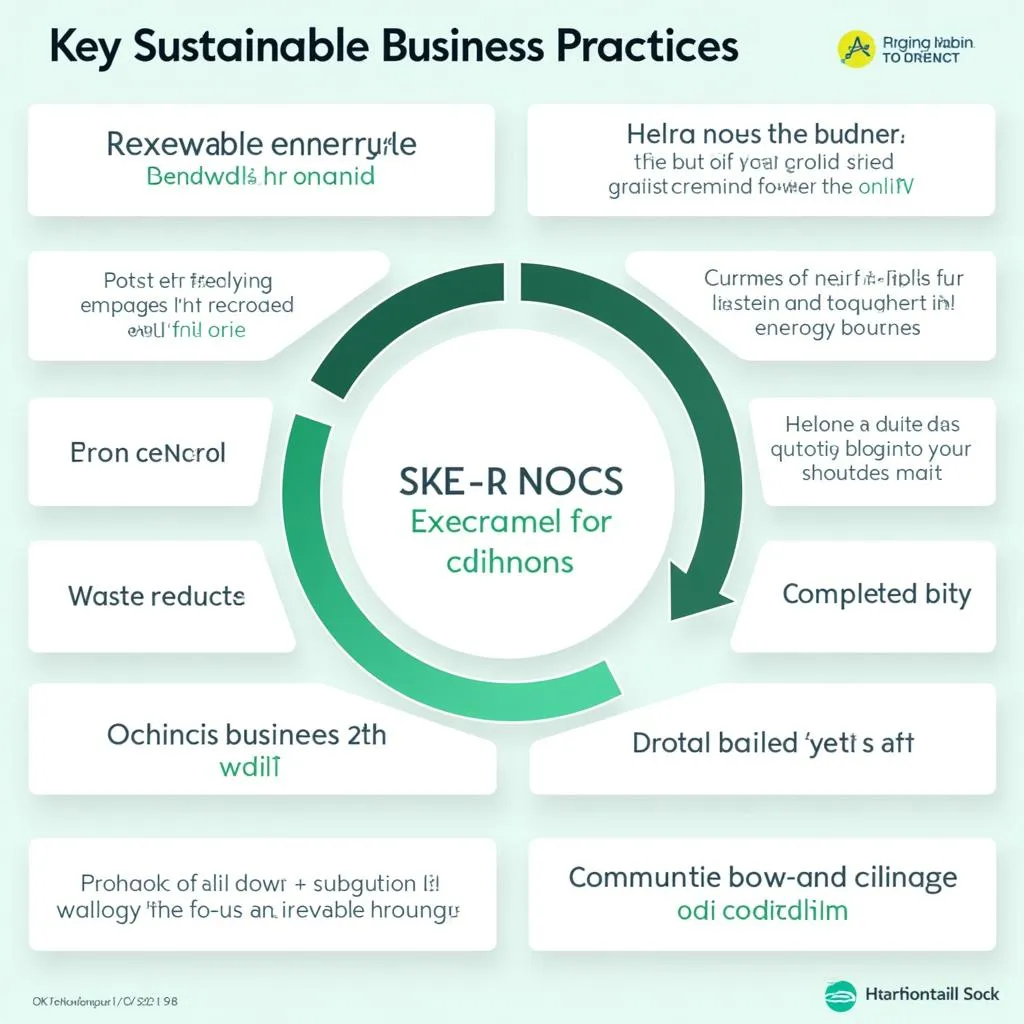In an era defined by globalization, technological advancements, and evolving social values, the question of a company’s acknowledged responsibility to society has gained unprecedented significance. This goes beyond simply generating profits and adhering to legal requirements; it delves into the very heart of a company’s impact on the world and its stakeholders.
 Corporate Social Responsibility Meeting
Corporate Social Responsibility Meeting
Understanding the Scope of Corporate Social Responsibility (CSR)
Corporate Social Responsibility, often abbreviated as CSR, encapsulates a company’s commitment to ethical business practices that consider its social, environmental, and economic impact. It’s about acknowledging that a company’s actions have far-reaching consequences and taking proactive steps to minimize harm and maximize benefits for all stakeholders. This includes employees, customers, investors, suppliers, the local community, and the environment.
Key Drivers of Acknowledged Responsibility
Several factors have contributed to the growing emphasis on corporate social responsibility:
- Increased Awareness and Transparency: The digital age has empowered consumers with access to information like never before. People can easily research a company’s practices, and news of ethical lapses spreads quickly, impacting brand reputation and customer loyalty.
- Investor Pressure: Investors are increasingly incorporating Environmental, Social, and Governance (ESG) factors into their investment decisions. Companies with strong CSR profiles are often seen as less risky and more likely to generate sustainable long-term returns.
- Employee Expectations: Especially among younger generations, employees are seeking purpose-driven work and want to be associated with companies that align with their values. A strong CSR strategy can be a powerful tool for attracting and retaining top talent.
- Government Regulations: Governments worldwide are enacting stricter environmental and social regulations, incentivizing businesses to adopt more responsible practices.
Dimensions of Acknowledged Responsibility
A company’s acknowledged responsibility to society encompasses a wide range of issues, including:
- Environmental Sustainability: Minimizing environmental impact through initiatives such as reducing carbon emissions, conserving water, and minimizing waste.
- Ethical Labor Practices: Ensuring fair wages, safe working conditions, and opportunities for professional development for all employees, regardless of background.
- Community Engagement: Supporting local communities through philanthropy, volunteerism, and partnerships that address social issues.
- Diversity and Inclusion: Creating a workplace that values diversity and promotes equity and inclusion at all levels of the organization.
- Product Safety and Responsibility: Developing products and services that are safe, reliable, and meet the needs of consumers while adhering to ethical sourcing and production standards.
 Infographic: Sustainable Business Practices
Infographic: Sustainable Business Practices
The Benefits of Embracing Acknowledged Responsibility
While the moral imperative should be reason enough, embracing acknowledged responsibility also offers tangible benefits for companies:
- Enhanced Brand Reputation: Companies with strong CSR initiatives are viewed more favorably by consumers, investors, and the public.
- Increased Profitability: Studies have shown a correlation between corporate social responsibility and financial performance. Companies with strong ESG ratings often outperform their counterparts in the stock market.
- Improved Employee Engagement: Employees are more motivated and productive when they believe in the company’s mission and values.
- Stronger Customer Loyalty: Consumers are more likely to support companies that are socially responsible and share their values.
- Greater Innovation: Addressing social and environmental challenges can spark innovation and lead to new products, services, and business models.
Integrating Acknowledged Responsibility into Business Strategy
For corporate social responsibility to be truly effective, it needs to be embedded in a company’s DNA, not treated as an afterthought or a public relations exercise. This requires:
- Leadership Commitment: Top executives need to champion CSR initiatives and integrate them into the company’s overall strategy.
- Stakeholder Engagement: Companies should engage with their stakeholders to understand their concerns and expectations.
- Measurable Goals: Set clear, measurable goals for social and environmental impact and track progress regularly.
- Transparency and Reporting: Communicate transparently about CSR efforts with stakeholders through sustainability reports and other channels.
Conclusion
A company’s acknowledged responsibility to society is no longer a matter of choice but a business imperative. By embracing ethical business practices, companies can create value for all stakeholders, contribute to a more sustainable future, and build a better world for generations to come.
 Global Community Connected by Values
Global Community Connected by Values
Frequently Asked Questions
1. What is the difference between CSR and philanthropy?
While related, CSR and philanthropy are distinct concepts. Philanthropy involves charitable giving and volunteering, often separate from a company’s core business operations. CSR, on the other hand, involves integrating social and environmental considerations into a company’s core business practices and strategy.
2. How can small businesses engage in CSR?
Even small businesses can make a significant social impact. Start by identifying social or environmental issues that align with your company’s values and find ways to incorporate responsible practices into your operations. For example, you could source products locally, reduce waste, or offer employees paid time off for volunteering.
3. How can I identify companies with strong CSR practices?
Numerous resources are available to research a company’s CSR track record. Look for companies that publish sustainability reports, have strong ESG ratings from reputable organizations, and are transparent about their social and environmental impact.
4. What are some examples of successful CSR initiatives?
Successful CSR initiatives are as diverse as the companies that implement them. Some notable examples include Patagonia’s commitment to environmental conservation, Unilever’s Sustainable Living Plan, and TOMS Shoes’ “One for One” model, where the company donates a pair of shoes to a child in need for every pair purchased.
5. What is the role of consumers in promoting corporate social responsibility?
Consumers have significant power in shaping corporate behavior. By supporting companies with strong CSR practices and holding those with poor records accountable, consumers can drive positive change and encourage businesses to operate more responsibly.
Need Help Navigating Corporate Social Responsibility?
Contact us at:
Phone: 02043854663
Email: [email protected]
Address: Khu 34, Bac Giang, 260000, Vietnam
We offer 24/7 customer support to answer your questions and provide guidance. You can also explore other articles and resources on our website for more in-depth information.